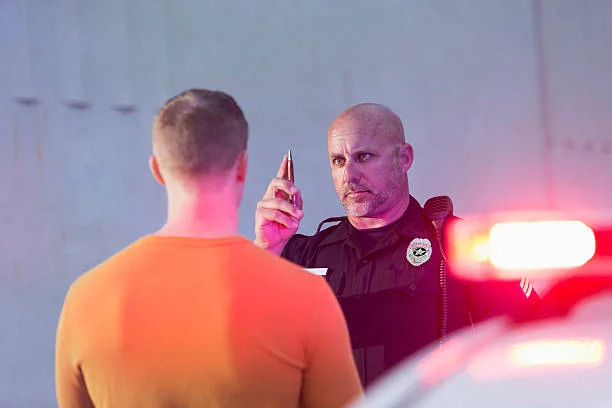Lights flash while you’re on the road. You pull over, and a Carrollton officer approaches your window. But don’t panic. A DUI accident attorney Carrollton residents trust can challenge the specific tactics police used against you.
What happens during a DUI stop isn’t random. The tactic isn’t complicated. It’s used in thousands of Georgia DUI stops every year.
Understanding it can change how you protect yourself.
The Universal DUI Investigation Playbook
Law enforcement officers across Georgia follow standardized procedures developed by the National Highway Traffic Safety Administration. These procedures create a step-by-step process that guides officers from the initial stop through arrest.
The Carrollton Police Department trains its officers in these same methods.
The process breaks down into three distinct phases:
Phase One: Vehicle in Motion
- Officer observes driving patterns
- Officer documents any traffic violations
- Officer initiates the stop
Phase Two: Personal Contact
- Officer approaches and makes observations
- Officer asks specific questions
- Officer looks for physical indicators of impairment
Phase Three: Pre-Arrest Screening
- Officer administers field sobriety tests
- Officer may request a portable breath test
- Officer makes an arrest decision based on accumulated evidence
Each phase builds on the previous one. By the time you reach Phase Three, the officer has already gathered substantial evidence through observations and your own responses.
The One Tactic Every Officer Uses: Building Divided Attention
Here’s the core tactic that appears in every single DUI stop: Officers deliberately create situations where you must divide your attention. This strategy runs through every interaction, from the initial questions at your window to the final field sobriety evaluations.
How It Starts at Your Window
The officer doesn’t just ask for your license and registration. Watch how the request actually unfolds:
“License and registration, please. Where are you coming from tonight? Have you had anything to drink?”
You’re fumbling for documents in your glove box while trying to formulate answers to probing questions. This isn’t accidental.
What the officer observes during this exchange:
- Can you locate your documents quickly?
- Do your hands shake or fumble?
- Does your speech slur while you’re distracted by the paperwork?
- Do you lose your train of thought mid-sentence?
The officer records all of this. A simple document request becomes the first test of your coordination and mental processing under pressure.
The Questions Aren’t Casual Conversation
Every question an officer asks serves a purpose. “Where are you coming from?” and “Have you had anything to drink?” aren’t small talk.
What these questions accomplish:
- Force you to think and speak while you’re already stressed
- Create opportunities for self-incriminating statements
- Allow the officer to assess your speech patterns and cognitive function
If you admit to drinking anything at all, even one beer hours ago, that admission goes straight into the police report. The officer now has documented evidence that alcohol is involved.
Field Sobriety Tests: Divided Attention by Design
If the officer suspects impairment after the initial contact, you’ll be asked to step out of your vehicle. This is where the divided attention tactic reaches its peak.
Every standardized field sobriety test approved by NHTSA requires you to listen to instructions, remember multiple steps, and perform physical tasks simultaneously.
1. The Horizontal Gaze Nystagmus Test
The officer holds a pen or small object about 12 inches from your face and asks you to follow it with your eyes without moving your head.
What the officer is looking for:
- Involuntary jerking of your eyes
- Inability to smoothly track the moving object
- Distinct nystagmus at maximum deviation
The test requires you to remain perfectly still while tracking a moving object in a chaotic environment. Even sober people can struggle under these conditions.
Factors that affect this test besides alcohol:
- Fatigue
- Certain medications
- Eye conditions
- Stress and anxiety
2. The Walk and Turn Test
This test demands extreme divided attention. You must:
- Stand heel-to-toe while listening to all instructions
- Remember to take exactly nine steps
- Touch heel to toe on each step
- Turn on one foot in a specific manner
- Count your steps aloud
- Keep your arms at your sides
- Walk an imaginary or actual straight line
Officers score the test based on eight possible indicators:
- Starting before the instructions finish
- Stopping while walking
- Not touching heel to toe
- Stepping off the line
- Using arms for balance
- Improper turn
- Wrong number of steps
- Cannot perform test
Showing two or more indicators means you “failed.” So, think about what this test actually requires.
3. The One Leg Stand Test
You stand on one leg while holding the other foot approximately six inches off the ground. You count aloud, starting at one thousand and one until the officer tells you to stop, typically for 30 seconds.
The officer watches for these indicators:
- Swaying while balancing
- Using arms for balance
- Hopping to maintain balance
- Putting your foot down before being instructed
This test splits your attention between counting, balancing, following instructions, and remaining calm during a stressful encounter.
People who face additional challenges:
- Those with back problems
- Those with knee issues
- Overweight individuals
- People wearing inappropriate footwear
These physical limitations have nothing to do with alcohol or drug use.
Why This Tactic Works So Well Against Drivers
Divided attention testing works because impaired drivers genuinely struggle with multiple simultaneous tasks. Alcohol and drugs affect the brain’s ability to process information and coordinate physical movements.
But here’s the problem: these tests also work against sober people.
Who struggles with field sobriety tests besides impaired drivers:
- Nervous people under stress
- Tired individuals
- Those with physical limitations
- Anyone anxious about the encounter itself
Officers score these tests subjectively. What one officer considers “using arms for balance,” another might view as normal steadying movements.
The Testing Environment Creates Problems
You’re not performing these tasks in a quiet, well-lit room with a level floor. You’re on the roadside with:
- Uneven pavement
- Traffic noise
- Flashing police lights
- Wind or rain
- Darkness
- Heavy boots or inappropriate footwear
None of these factors indicates impairment, but they all affect your ability to pass divided attention tests.
You Don’t Have to Participate in Field Sobriety Testing
Georgia law does not require you to perform field sobriety tests. These evaluations are voluntary. The law enforcement officer may strongly encourage you to take them, using language that makes refusal seem suspicious or uncooperative, but you have the legal right to decline Carrollton police.
Key facts about refusing field sobriety tests:
- Won’t result in automatic license suspension
- That consequence only applies to refusing chemical tests after arrest
- Officers can still arrest based on other observations
- Refusal prevents gathering additional evidence through your performance
However, officers can still arrest you based on other observations, like:
- Odor of alcohol or drug
- Slurred speech
- Bloodshot eyes
- Your driving behavior
Refusal doesn’t prevent arrest, but it does prevent the officer from gathering additional evidence through your performance on divided attention tests.
Chemical Testing Comes After Arrest
If the officer arrests you for DUI, Georgia’s implied consent law allows officers to request a state-administered breath, blood, or urine test after arrest.
You may refuse, but refusal triggers an administrative license suspension.
What happens with chemical testing:
- Refusing triggers administrative license suspension
- Officers must read the implied consent notice before requesting the test
- The notice explains your rights and the consequences of refusal
- State-administered tests must use GBI-DOFS-approved instruments and procedures
Many drivers confuse field sobriety tests with chemical testing. They believe field tests are mandatory because officers present them that way. Understanding the difference protects your rights during a DUI stop.
Challenging the Evidence Police Gather
A DUI defense lawyer can challenge every piece of evidence gathered through divided attention tactics.
Multiple grounds exist for attacking field sobriety test results:
- Officer didn’t follow NHTSA protocols correctly
- Testing conditions were inappropriate or dangerous
- Medical conditions affected your performance
- Officer failed to properly demonstrate the tests
- Video evidence contradicts the officer’s report
- Officer lacked proper training or certification
The police report may claim you failed field sobriety tests when video evidence shows you performed reasonably well, given the circumstances.
Officers sometimes exaggerate indicators of impairment in their written reports. A criminal defense attorney experienced in Georgia DUI defense knows how to expose these discrepancies and challenge the reliability of the tests.
What to Do During a Carrollton DUI Stop
Knowing the divided attention tactic helps you make better decisions if police pull you over. Here’s what you need to do:
Be polite but cautious with your words. You must provide your license, registration, and proof of insurance. You don’t have to answer questions about where you’ve been or whether you’ve been drinking.
Understand that field sobriety tests are voluntary. Politely decline to perform them. Say something like: “I don’t feel comfortable taking field sobriety tests. I’d like to speak with an attorney.”
Don’t consent to vehicle searches. Officers need probable cause to search your vehicle without consent. Saying yes eliminates that requirement.
Remember everything you can about the stop. Mental notes about road conditions, weather, what the officer said and did, and how you felt physically can help your defense attorney later.
If police arrest you, request to speak with a DUI lawyer immediately. Don’t make statements about your case without legal representation present. Your right to remain silent exists for good reason. Use it.
Georgia DUI Defense Starts with Understanding Police Methods
Don’t let police tactics and procedures intimidate you into accepting charges without exploring every available defense.
Georgia criminal defense attorneys like J. Ryan Brown Law, who focus on DUI cases, understand how police build their cases using divided attention tactics.
They know how to challenge field sobriety test evidence and identify violations of your constitutional rights during the stop.






